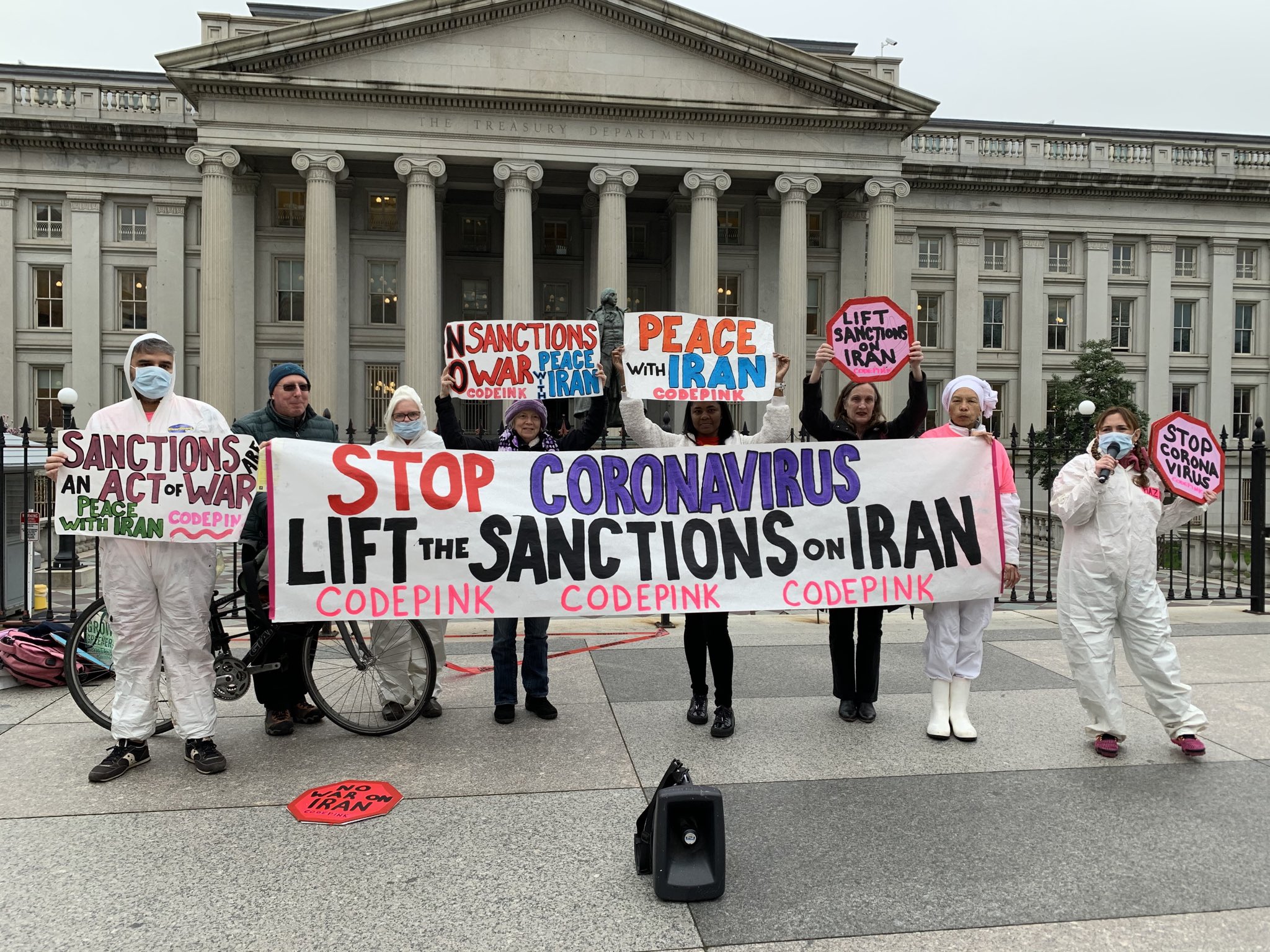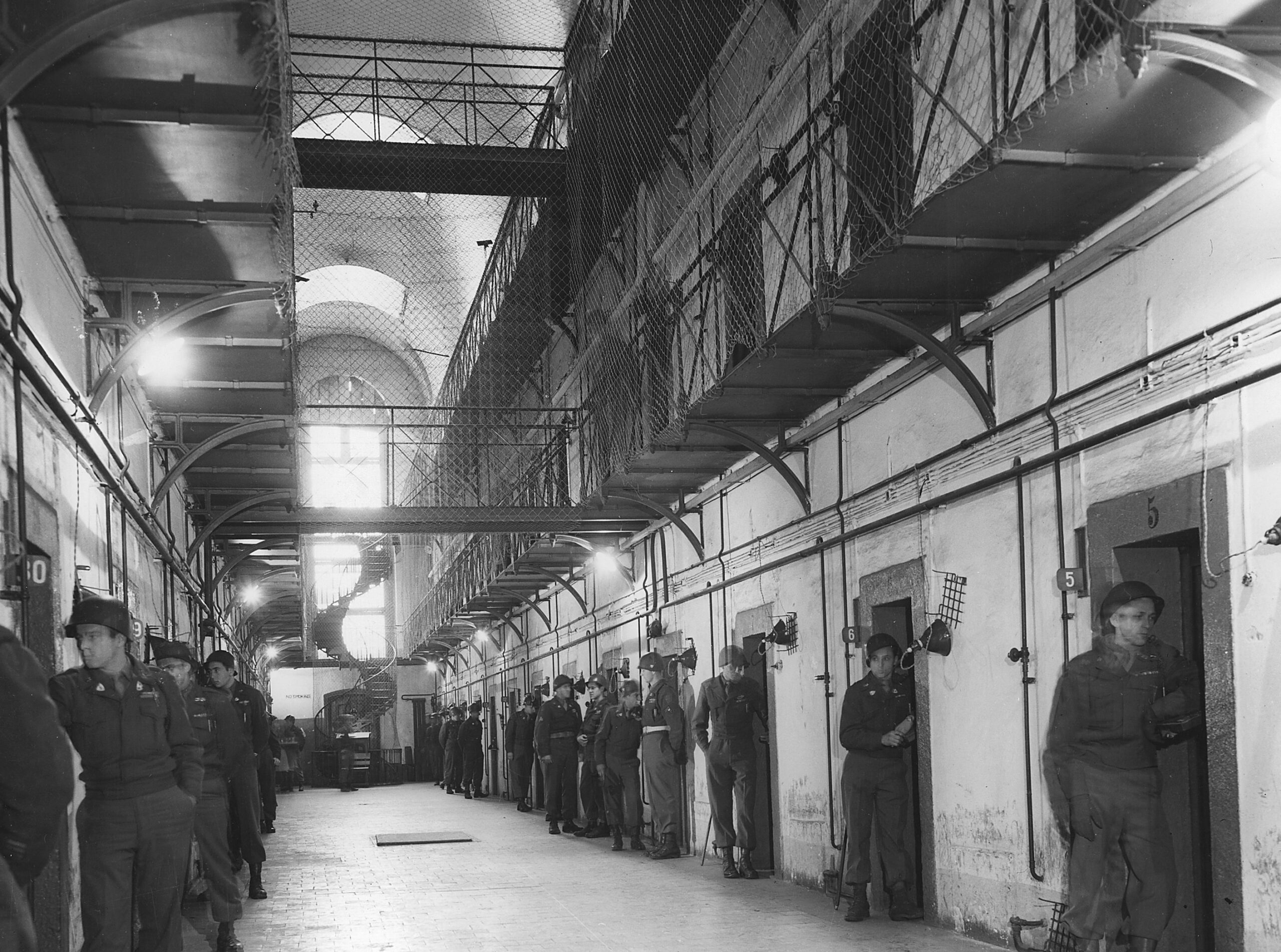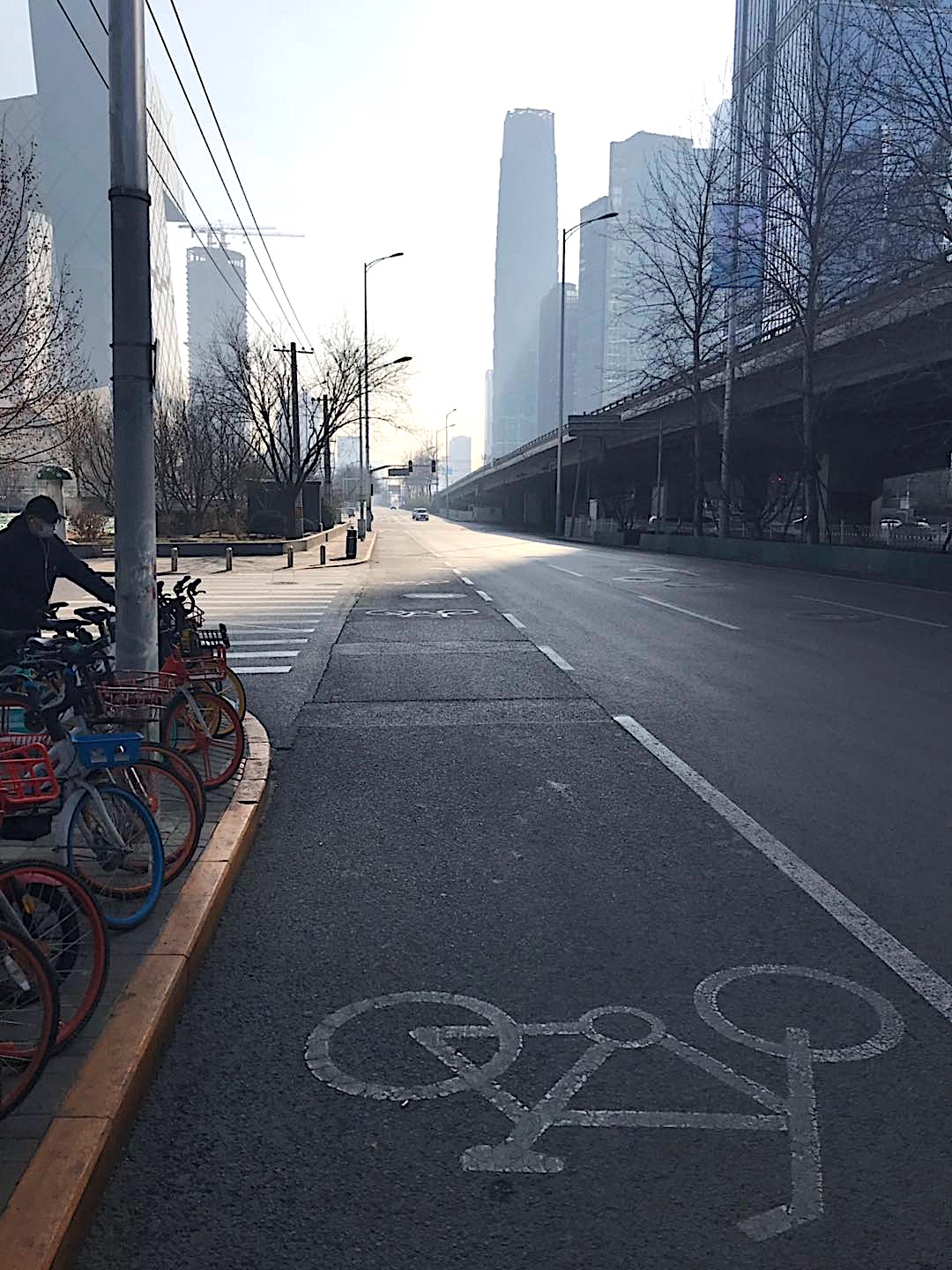Tony Kevin finds it remarkable that the U.S. and its partners are frozen in diplomatic quarantine while the pandemic afflicts countries around the globe.

UN headquarters in New York. (Flickr/Julien Chatelain)
By Tony Kevin
in Canberra, Australia
 It is true that the COVID-19 pandemic is not a threat to international security as defined by the UN Security Council. People are dying quietly in hospitals or at home. These miseries and deaths do not threaten national borders. There can be no running away as refugees from COVID-19.
It is true that the COVID-19 pandemic is not a threat to international security as defined by the UN Security Council. People are dying quietly in hospitals or at home. These miseries and deaths do not threaten national borders. There can be no running away as refugees from COVID-19.
Yet there would be benefits in terms both of morale and policy in world leaders constructively meeting together soon – virtually of course, not physically – to try to agree on some common principles of national conduct in opposing the virus. I am thinking of three suggested principles for discussion in particular:
No. 1. Nations that have resources to do so should commit to helping other nations where the need is greatest, and to the best of their ability, to fight the virus .
No. 2. Nations should agree to put an at-least-temporary, and with hope permanent, end to economic sanctions as a weapon to apply pressure short of war on other nations.
No. 3. Nations should decisively reject the misplaced and morally evil notion of building “herd immunity” as a guide to public health policy against the pandemic.
Let’s discuss these in turn. First, on countries helping one another, we already see altruistic acts of generosity from China (towards Iran, Italy and others), from Russia (towards Italy), and from Cuba and South Korea. I am not aware so far of any international offers of help to stricken countries from any Western government. At least so far, we seem in a world pretty much of sauve qui peut– save himself who can. Does this accord with the principles of international solidarity that all nations signed up for under the UN Charter? I think not.
Secondly, on economic sanctions, the picture is if anything worsening as the virus spreads. Last week U.S. Secretary of State Mike Pompeo continued to threaten tighter sanctions against Venezuela and Iran, even as these countries reported intensifying citizens’ suffering from Western sanctions’ interference with vital COVID-19 medical supplies and appliances to their state-owned health sectors. The U.S. government and Congress entertained White Helmets leaders in Washington, in a bid to energize the failing anti-Syrian government armed opposition in Idlib, Syria. Dominic Raab, the U.K. foreign minister, fulminated abusively and untruthfully against Russian policy in Crimea and East Ukraine.
Cold War Redux Narratives
There is a mindless, Terminator–like quality about the way such Cold War Redux anti-China and anti-Russia narratives continue to be mechanically pumped out, even as the world begins belatedly to recognize its common enemy in the COVID-19 pandemic.
Economic sanctions not approved by the UN Security Council against an aggressor nation are in themselves a criminal act — a crime against humanity, when people suffer and die as a result of them. The U.S. tries to stop essential medicines and supplies reaching Venezuela and Iran, simply as unilateral U.S. policy, which it seeks to force on its weaker allies through threat of secondary sanctions. Russia and China protest but to no avail: U.S. President Donald Trump and Congress appear oblivious to their own criminality. Certainly Trump and Pompeo appear indifferent, and their allied national leaders remain prudently quiet.
In the cruelest of Medieval wars, armies besieging an enemy city sometimes would catapult decaying corpses of plague victims over the walls, hoping to infect those inside. What the U.S. government is now doing to stricken Iran and Venezuela is the modern-day equivalent to this. It is simply wrong, as Pakistan’s President Imran Khan recently protested. Who will dare to join him?

(Twitter @medeabenjamin, March 11, 2020)
My third point on which world leaders might try to agree is that decent societies should reject pernicious notions of “herd immunity,” or letting COVID-19 run its course unabated in societies, in the hope that by “culling” the older weaker elements in society, the society might emerge healthier and stronger. The Nuremberg War Crimes Tribunal rejected Nazi eugenics, and it would be timely for world leaders to reaffirm this moral position.

Main section of prisoners’ call block in the Nuremberg jail. (National Archives, Wikimedia Commons)
Decent societies respect and take care of their elders to the best of their ability. They do not abuse their elders. China and Korea have shown this moral example to the world. The world should commit to follow as best it can.
“It is time to set this poisonous argument aside and move on to constructive collective dialog.”
What would be the most effective vehicle for useful world leaders’ dialog on COVID-19 at this point? I have considered the merits of virtual meetings in four possible fora: G-9, G-20, the whole current UN Security Council and the UNSC Permanent Five (P-5) at national leader level. For reasons that should on reflection be rather obvious, I favor the P5 option. Basically, I envisage a “new Yalta Conference” on the COVID-19 pandemic.
The Permanent Five
The G-7 is not representative. The G-20 is better, but large, unwieldy and prone to special agendas that could distract and complicate its discussion. It is also, numerically, heavily biased against key nations China and Russia. Similarly for the present UN Security Council as a whole. A proposed P-5 forum of national leaders of the U.S., U.K., France, China and Russia – involving Trump, Prime Minister Boris Johnson, President Emmanuel Macron, President Xi Jinping and President Vladimir Putin — is the right size and clout to have an efficient and effective free and frank dialog, moderated and facilitated as necessary by the skilled and non-partisan UN Secretary-General António Guterres.
A familiar plot device in science fiction is a world of warring governments coming together against a common enemy – usually alien invaders. COVID-19 is this common enemy, an enemy which does not respect borders. But I see no sign of old Cold War hostilities being put aside. After an early hopeful Trump-Xi conversation about the virus, U.S.-China relations have reverted to a frozen hostility. I am heartened that Putin has now sent real aid to stricken Italy, and that Italy accepted. Typically, the Russian aid transport planes had to fly via Sochi, the Black Sea, Turkey, and Greece after Poland and Ukraine denied air space. There needs now to be real international assistance to weakened Iran and Venezuela, and an end forthwith to sanctions.

A normally busy Beijing thoroughfare on Jan. 31, 2020, when COVID-19 had emptied the streets of the capital city. (James Barnard)
Finally, a comment on how U.S.-China mutual accusations have lately become even more poisoned over the vexed questions of where and how the virus originated or got away from control. Suspected sites are U.S. Army Medical Research Institute of Infectious Diseases at Fort Detrick, Maryland, about 50 miles outside Washington, and a Chinese Bio-security Lab 4 (BSL4) facility in Wuhan.
We know from the local Frederick News-Post that the U.S. Fort Detrick facility there was forced to close down in August 2019 due to safety protocol failures, and a new commanding officer was appointed there. Clearly something had gone seriously wrong. The facility was only partially reopened in November. We know that international military athletics games were held in Wuhan in October 2019. The U.S. sent a rather mediocre 300-person team. Chinese officials, and officials writing “in personal capacity” on social media, have come close to accusing US saboteurs of disseminating the virus deliberately in Wuhan.

U.S. Army Medical Research Institute of Infectious Diseases at Fort Detrick, Maryland. (U.S. government, Wikimedia Commons)
U.S. leaders (Trump, Pompeo) persist provocatively in calling the virus the “Chinese” or the “Wuhan” virus, ignoring Chinese government protests.
It may never be possible scientifically to resolve these inflammatory questions. Clearly, to harp on them could seriously threaten an effective and useful P-5 dialog on what the world should be doing now to fight to contain the pandemic. It is time to set this poisonous argument aside and move on to constructive collective dialog.
Finally, should Australia try to play any diplomatic role as an icebreaker? As an ally of the U.S. and U.K. and a friendly enough partner of France, there is nothing to prevent an Australian government from advocating such ideas to its larger friends. There is also no reason for Australia not to enter into constructive dialogue on these ideas at foreign minister level with the Chinese and Russian governments.
How about it, Foreign Minister Marise Payne? Labor MP Penny Wong? Prime Minister Scott Morrison’s expanded National Cabinet?
Tony Kevin is a former Australian senior diplomat and the author of six published books on public policy and international relations.
The views expressed are solely those of the author and may or may not reflect those of Consortium News.
Please Donate to Consortium News.
Before commenting please read Robert Parry’s Comment Policy. Allegations unsupported by facts, gross or misleading factual errors and ad hominem attacks, and abusive or rude language toward other commenters or our writers will not be published. If your comment does not immediately appear, please be patient as it is manually reviewed. For security reasons, please refrain from inserting links in your comments, which should not be longer than 300 words.

The USA will observe within the next couple of weeks what is the result of blaming, dithering, lying, hatred, and it is to be hoped that finally someone in the “leadership” of the USA will be able to act rationally and not continue the present policies which have poisoned any real cooperation with anyone but USA puppets.
Very nice and uncluttered editorial Mr. Kevin.
To the second point – ongoing sanctions that are worsening the suffering and death: This finally and forever puts the lie to the assertion that the US is “a Christian nation.” Of course there are those that would argue, with some history to support them, that this is EXACTLY the face of Christian societies. There are true Christians out there, those that believe in the distilled simplified message of “Jesus” – charity, tolerance, forgiveness, and inclusiveness. So, is there any hope that these humble adherents could wrest the message away from the charlatans, hucksters, and grifters that assume to speak for them? One way to do that is to STOP VOTING FOR THE ASSHOLES! My parents were simple Christians, my neighbors across the street are simple Christians, my brother-in-law a retired Lutheran minister who pastored in working-class parishes, and they are nothing like Trump, Pompeo, or name your favorite fraud.
I noted to myself at the time the irony of Poland’s participation in the illegal US invasion of Iraq. “Shock and Awe” merely being the updated version of “Blitzkrieg” (and s&a being coined by an Israeli think tank, if I’m not mistaken.)
Tony I dearly hope that voices like yours would be heard and considered, but I fear that much needless death and suffering will transpire before that happens. And I am sorry for and regret that pessimism.
disclaimer: a US citizen of Polish, German, and Ukrainian descent; non-religious “true” agnostic.
As long as deranged Trump fans get a fuzzy warm feeling every time Trump’s minions put hands on him the country falls further into a mystical void.
Trump is obviously “around the bend” , jumped the rails, off his rocker and pretty much simply criminally insane. All true believers who actually believe he will be your salvation just hang in there for a while and watch. You wanted him and you got him, good luck with that because you are gong to need it. My Dog like the Romans I give him a thumbs down.
The democrats are running scared and they should be. When the Chair of the Intelligence Committee can co-op a very senior democratic senator, by providing insider trading information our problem as a nation is obvious. You cannot trust anyone connected with the intelligence community who is in congress and the congress is supposed to be the watch dog for those agencies.
This idiot, to prove his incompetence golfed or sat on his ass for weeks when he could have done something but he waited to protect the markets.
So ya all can get down on your knees and start praying for real because his lack of action is going to cost hundreds of health workers lives. I really don’t expect any of you to understand what that means but you th k you had problems getting a doctor before this hang around.
Stupid is as Stupid does folks have a ball!
One can only hope that your article is widely read in Australia. The government there is not so different, in its approach to international affairs, than the US and UK governments.
I wish it were . All our editors here are afraid to run my stuff. Thank you, Consortium News.
”Dominic Raab, the U.K. foreign minister, fulminated abusively and untruthfully against Russian policy in Crimea and East Ukraine.”
But of course he did, he was reading from a Foreign Office script. WTF does this little Tory lawyer nonentity know about Ukraine? Its politics, its history?! This I am afraid is the quality of recruits to senior governmental positions. Probably the same everywhere.
According to Russian news site Gazeta.ru yesterday , UN Secretary General Guterres has proposed that all bilateral sanctions in view of the common threat of the corona virus be abolished, just as advocated in this article! He shall have recommended the G20 to implement the abolishment. Not much on this in Swedish media.
Correction: the call to the G20 was for a powerful package of actions in response to the threat
The USA will observe within the next couple of weeks what is the result of blaming, dithering, lying, hatred, and it is to be hoped that finally someone in the “leadership” of the USA will be able to act rationally and not continue the present policies which have poisoned any real cooperation with anyone but USA puppets.
Thanks, Tony, wise words from you as always. Unfortunately, as you know, Australian governments of both major parties take their riding instructions on foreign policy direct from Washington. Apart from Whitlam’s brief tenure as Prime Minister (and we all know what happened to him for stepping out of line), nothing has changed since 1966 when PM Harold Holt famously declared Australia to be, ‘all the way with LBJ).
Good points, particularly spot on with pts #1 and #2.
However (comma as they say), it ain’t going to happen as long as pompeo is serving as lead “diplomat.” To engage in diplomacy, going out on a limb here, nations need diplomats. With the likes of pompeo, hook, abrams, leading the charge on sanctions, it is fantasy to see a change.
As the article says, decent nations help other nations: China helping Italy, Russia helping Italy (in spite of poland not allowing overflights of Russian aircraft to Italy), and so on. Nations seem to want to help Venezuela, Iran, but are stymied by of course American sanctions.
Agree, Tarus77.
You note that nations seem to want to help Venezuela and Iran – I always wonder why Russia and China don’t simply load up planes with essential personnel and equipment and fly them to Venezuela and Iran. Short of shooting them down, what’s the US going to do about it?
Both Venezuela and Iran are exporters, so China seems a likely source of support, while Russia would be a trade competitor. China imports about 8 percent of its oil from Iran, 2 percent from Venezuela, so could readily bring medical supplies that way. It oil demand has been steady despite the virus, and is rapidly growing, so it could grow supplies from needy sources faster. China gets much more oil from the Mideast, so there may be political issues, and travelers from China might be an expected source of infection.